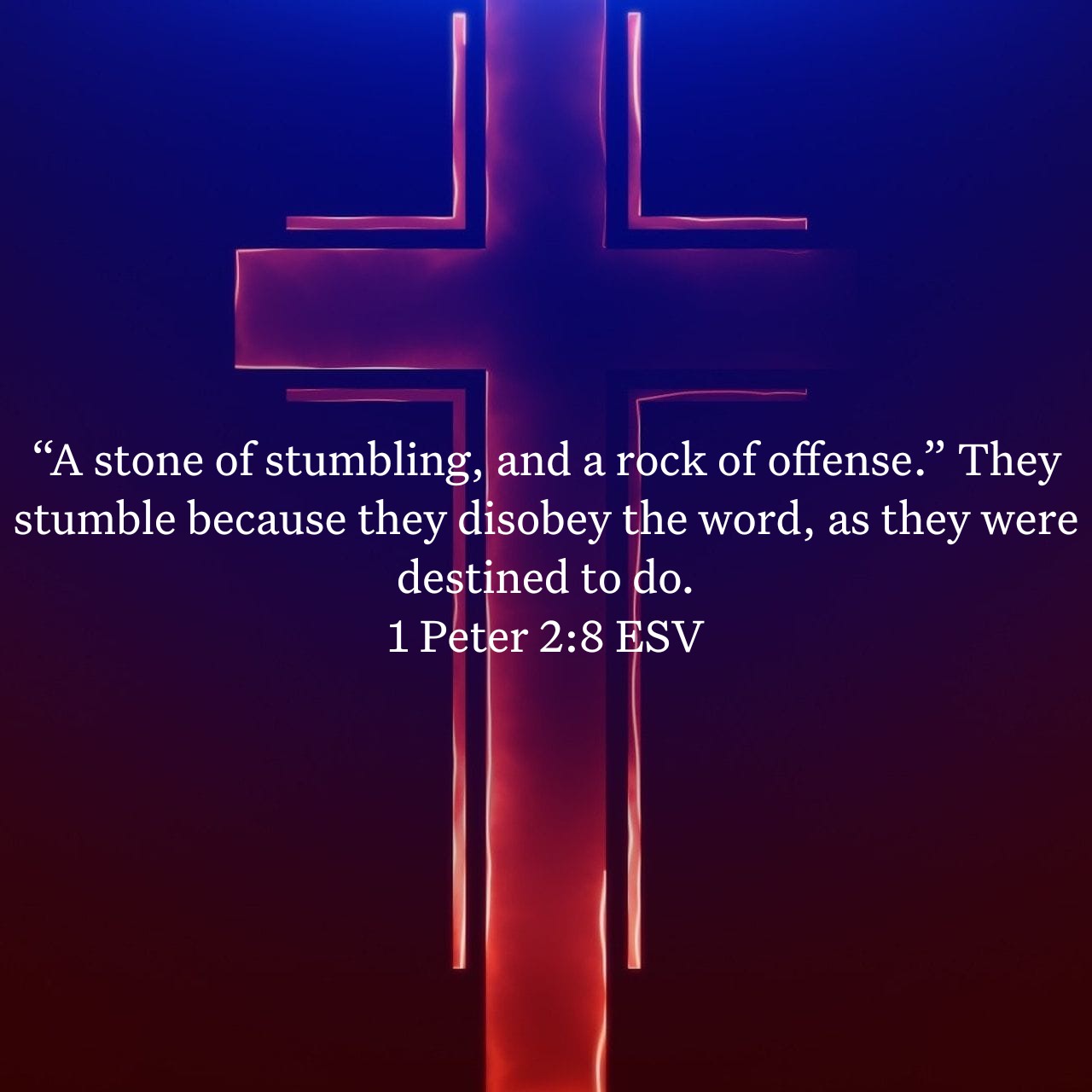Devotional 28 August 2025

Peter draws a sharp line here: Christ is either the immovable cornerstone of your life or the stone you trip over. There is no neutral response. He quotes Psalm 118:22, a prophecy fulfilled in Jesus’ rejection and exaltation (compare Matt 21:42–44). To those who believe, Christ is “chosen and precious” (1 Pet 2:4–6); to those who refuse Him, He is the very Judge their hearts resist (John 5:22–23).
John said, “This is the judgment: the light has come into the world, and people loved the darkness rather than the light” (John 3:19). The same sun that melts ice hardens clay. Christ’s presence reveals the true nature of every heart, “appointed for the fall and rising of many” (Luke 2:34). His parables illustrate this reality: one seed, yet different soils (Matt 13:1–23); one invitation, yet wise and foolish virgins (Matt 25:1–13); one storm, yet houses either stand or fall (Matt 7:24–27).
Peter does not shy away from God’s sovereignty: unbelief itself fulfills God’s purposes (Acts 4:27–28; Rom 9:22–23). Those who stumble do so because they “disobey the word, as they were destined to do.” Yet for believers, Christ is not shame but honor (1 Pet 1:6–7). Like gold refined by fire, their faith proves genuine. This is not because of innate goodness but because Christ gives new birth (1 Pet 1:3), a new heart of flesh (Ezek 36:26), and His own life flowing within (Gal 2:20).
The cornerstone image is deeply comforting. Unlike shifting sand, Christ is an unshakable foundation. But this truth also confronts: is Jesus to you a rock of offense or the cornerstone of your life? The answer is not merely a matter of taste; it is ontological: He reveals whether we are sheep who hear His voice (John 10:26–27) or those who reject Him.
Every person must answer, “What do I do with Jesus?” The cross is “folly to those who are perishing, but to us who are being saved it is the power of God” (1 Cor 1:18). There is no middle ground. Will you stumble over Him, or will you stand on Him forever?